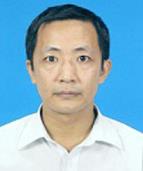Keynote Speaker---Dr. Dr. Malin Song, Professor

Dean of the Graduate School, Anhui University of Finance and Economics, China
Biography: Prof. Malin Song is now the Dean of the Graduate School of Anhui University of Finance and Economics. He founded the Managerial Statistics Research Center in November 2011 and the Chinese Ecological Economics and Statistics Innovation Research Center in AUFE in May 2013, and he has served as the Director of both since their establishment. He was elected into the “New Century Excellent Talents Support Plan” program sponsored by the Department of Education of China in December, 2012. From 2014, he has served as an adjunct research fellow at the China Research and Development Centre (UK). In November 2015, he was recognized as one of excellent young and middle-aged experts with outstanding contributions in China. In January 2016, he was invited to be a member of Scientific Committee of the Inter-University Sustainable Development Research Programme; in July, he was appointed as the Chief Editor of the journal Management of Environmental Quality that subordinate to Emerald Group; in November, he was invited to be an academic advisor for doctorate thesis of Southwestern University of Finance and Economics; and in December, he was elected as a famous teacher in Anhui Province, China. In July 2017, he was appointed as a distinguished professor of the Wanjiang Scholars project. In September 2018, he was selected into the Academic Overview of 60 Well-known Scholars by China Society of Industrial Economics since the reform and opening up 40 years ago. In November 2018, he was appointed as a member of the teaching guidance committee for statistics majors in institutions of higher learning by the Ministry of Education of China.
In recent years, Prof. Song has focused on data envelopment analysis, environmental economics, and statistics, with remarkable achievements, especially in environmental efficiency evaluation and applications. He has presided over and completed the project “Environmental efficiency evaluation method and applications based on data envelopment analysis” sponsored by the National Natural Science Foundation of China, which is assessed as “excellent” afterwards. Currently, Prof. Song is presiding over significant brainstorming researches on topics in the fields of philosophy and social science, under the mandate of the Ministry of Education of China.
Since 2010, Prof. Song has published more than 100 papers on international SSCI/SCI journals as the first or corresponding author, and nearly 20 papers in Chinese journals, such as Economic Research, as the first author. Prof. Song has received following academic awards: the first prize from the National Commercial Ministry; the second prize of the National Statistical Scientific Research Outstanding Achievement Award; the second prize from the National Commercial Ministry; the first, second, and third prizes of the National Commercial Scientific and Technological Advancement Award; the third prize of the 7th Higher Education Scientific Research (humanities and social sciences) Outstanding Achievements Award; and the second and third prizes for excellent theses on natural science in Anhui Province.
Speech Title: Evaluation of Sustainable Development Capability of Anhui Province, China Based on Entropy Weight Fuzzy Matter-Element
Abstract: Environmental pollution and other problems caused by the rapid development of social economy seriously threaten the survival of human beings. The sustainable development capacity of a region is the ability to develop resources, environment, ecology and economy in harmony, which is an important factor for the long-term development of a country and determines the potential of its future sustainable development. Based on the development ideas of "innovation, coordination, green, open, and sharing", and by taking the Anhui Province of China as an example, this paper establishes an entropy fuzzy matter-element model to comprehensively evaluate the sustainable development capacities of Anhui Province and its prefecture-level cities from five subsystems: resource sustainability, environmental sustainability, ecological sustainability, economic sustainability, and social sustainability. Research results show that the overall level of sustainable development capacity of Anhui Province was improving progressively from 2010 to 2017 and that of each subsystem was increasing in varying degrees as well; the sustainable development capacity of environmental, economic and ecological subsystems has been improved the most. However, from the perspective of regional development, the sustainable development capacities were quite unbalanced among different prefecture-level cities in Anhui Province; the sustainability of economy was obviously better than that of other subsystems, and the sustainable development capacity of northern Anhui was significantly backward as compared with that in central and southern regions of Anhui Province. Therefore, there is a certain pressure for Anhui to achieve the goal of sustainable development. In the long run, it is necessary to strengthen the regional sustainable development, formulate development policies and measures according to local conditions, and give play to the comparative advantages of cities to jointly promote the sustainable development of the whole province.